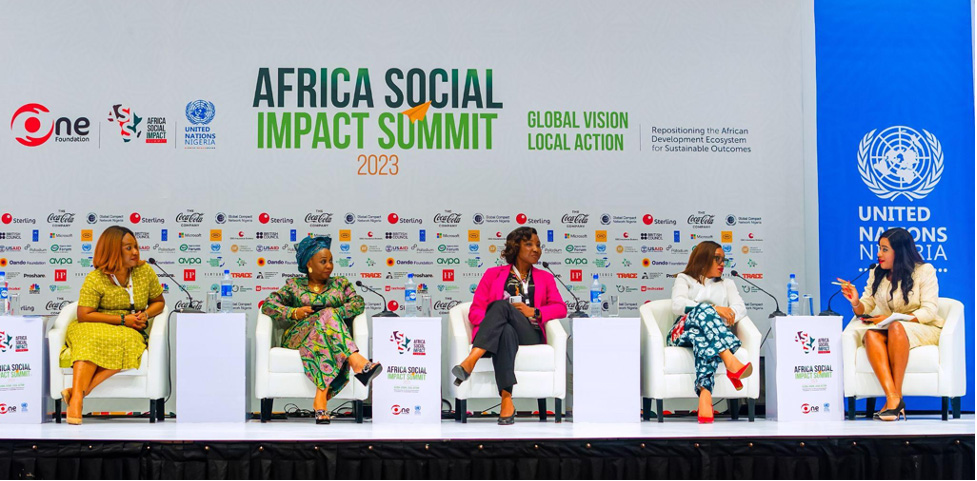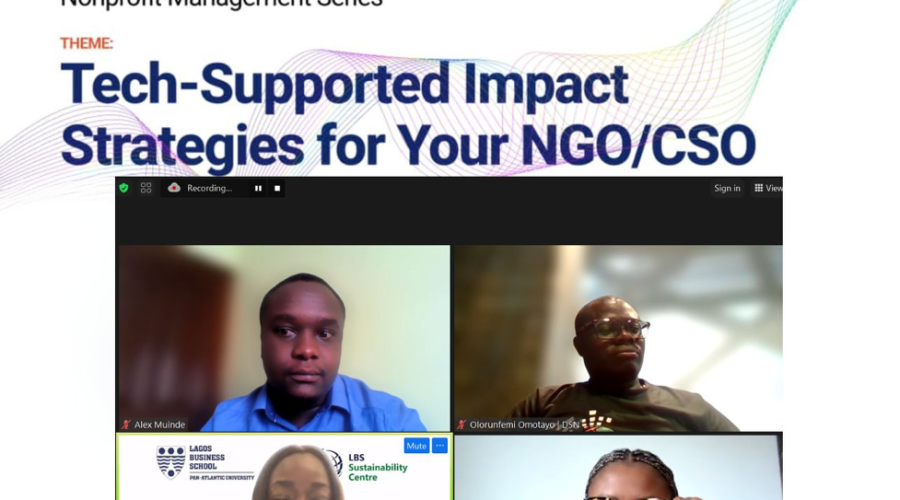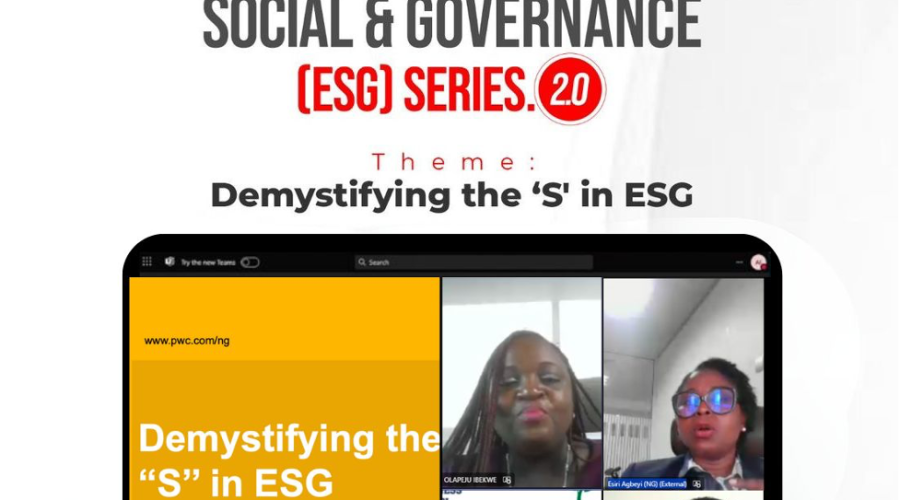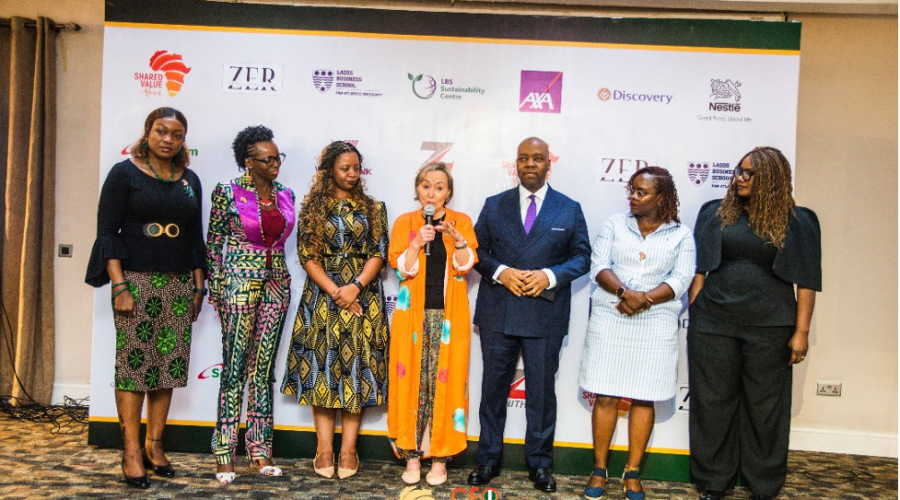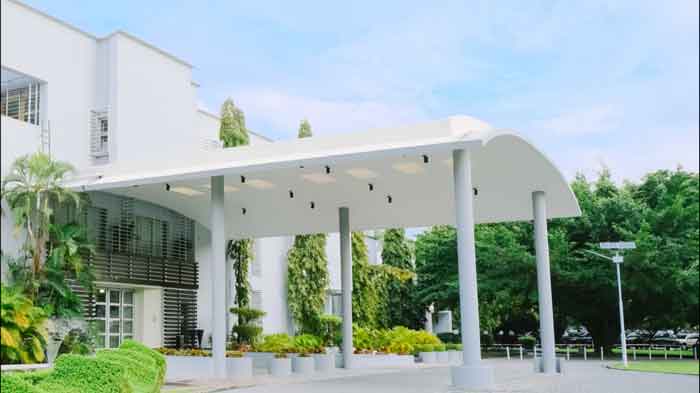African countries need to accelerate action for the achievement of locally relevant development goals, especially the frameworks of the 2030 Sustainable Development Goal (SDGs) and Africa Agenda 2063 for the Africa we want. This is the general sentiment of development and multilateral institutions as espoused in the 2022 Africa Sustainable Development Report by the African Development Bank (AfDB), United Nations Development Programme (UNDP), and United Nations Economic Commission for West Africa (UNECA). In view of this, the private sector-backed nonprofit organisation, SterlingOne Foundation convened their flagship annual forum with the discourse focused on the theme ‘Global Vision, Local Action: Repositioning The African Development Ecosystem For Sustainable Outcomes.’
The Africa Social Impact Summit (ASIS) had the participation of experts, leaders and stakeholders from across the continent converging in Lagos, Nigeria. Participants discussed the insights and perspectives needed for concerted action across critical sectors, expressing their thoughts, and offering expert advisory that signposts the way forward for Nigeria and the continent. The following are our takeaways from the summit:
Climate Action: On climate action, public sector authorities, regulators, and private real estate players need to steer the way on climate leadership. Policies, regulation and best practices that pave the way for a clean energy transition, urban planning that minimises climate change impact, and incentives for climate resilient innovation should become reality. This will help to fast track SDG Goal 13 which seeks to combat the impact of climate change across the continent.
Gender and Social Inclusion: The sub region is still witnessing barriers to the rights of women, physically disadvantaged persons, and the less privileged, to education, work, and much more. Barriers need to be dismantled with many trust gaps closed as espoused by the Federal Permanent Secretary Ministry of Women Affairs, Mrs Monilola Udoh, who spoke on the need for the 5Cs to drive inclusion which are: communication, cooperation, collaboration, coordination and cordiality to dismantle these barriers and create equitable access to women, the physically disadvantaged and less privileged to pursue their God-given rights to education and a meaningful livelihood which is the focus of SDGs 5, 10 and 11.
Employability of our Youths and the Future of Work: Ensuring our youths are skilled at every point in their education journey was a major concern and submission. The continent’s education curriculum should be redesigned to enable students get workable skills that can earn them a livelihood even without graduating, so much so that a year 1 accounting student should be able to get a Teller certification at the end of his first year in university that enables him secure a job without a degree certificate. At the end of his year 3 and 4, he should have gotten skills and certifications such as the Certified Financial Analyst (CFA) that positions him to get jobs across risk management, portfolio management, financial analysis, private wealth, consulting, and even more
This is the thinking that should go into our Pan-African curriculum redesign to lift our youths out of poverty and unemployability. For good measure, the future of work is also called the work of now and as such, private, public and nonprofit sector organisations must create innovation and learning hubs which also double as recreational centres for our youths to skill up to par with their peers across the globe, helping them stay relevant and tap into the resources and opportunities of the global economy. Lastly, organisations must take a cue from Sterling Bank which has deliberately created a pipeline to draw in physically disadvantaged and talented youths into the organisation as a way to walk the talk of social inclusion. Beyond this, Sterling has also created a pipeline to draw in young girls in tech by collaborating with Decagon, a software engineering training institute that arms young girls with tech skills needed to plug into today’s tech world. This is commendable and the right way to go, and advances the attainment of SDGs 4 and 9.
Education: Quality primary, secondary and tertiary education has remained a hard nut to crack, with many relevant authorities at sixes and sevens as to the best approach to stamping out learning poverty from the continent. The Africa Report has submitted that 9 out of 10 African children can not read with comprehension at the age of 10, with UNICEF positing the case is worsening. The Africa Literacy Project has even more damning statistics indicating that more than 1 in 3 adults in Sub-Saharan Africa can not read, 48 million youths aged 15-24 are illiterate and 30 million kids of primary school age are not in school.
Here in Nigeria, UNICEF has indicated 75% of Nigerian children aged 7 to 14 can’t read a simple sentence while in South Africa, only 2 out of 10 children can read at the age of 10 as indicated by the Progress in International Reading Literacy Study (PIRLS). All of these calls for a turnaround strategy and joint action by public, private and nonprofit sector stakeholders to give kids on the continent the headway they need in developing their cognitive abilities. From the establishment of functional papermills which places reading and writing materials in the hands of kids, to retraining and retooling of teachers, critical public, private and nonprofit sector organisations all have a role to play in ensuring every child of school age is properly educated and cognitively developed to meaningfully contribute to meeting society’s unending demands.
Impact Investments: Catalytic capital, impact investments and blended finance need to be employed in the continent’s playbook to hasten social impact on the continent which is largely an uncommon marketplace. These fund types give social innovators in need of investments the flexibility, concessions and allowance for disproportionate risks which conventional investors do not subscribe to. Furthermore, non-tariff barriers for fintech players between Central Banks on the continent must be broken as well to give unhindered access to a seamless exchange of cash and opportunities between businesses and innovators on the continent. More impact investments and a harmonisation of fintech transactions allowing borderless transactions is the sure way to lift more people out of poverty as envisioned by SDG 1.
Agribusiness: It is true that sustainable agricultural practices on the continent are far and few between, with more focused on subsistence farming than agribusiness. Globally, the World Bank submits that agriculture-related businesses and jobs have accounted for more than 4% of global GDP with over 25% of GDP in least developed countries. In Nigeria, the Food and Agricultural Organisation (FAO) indicates Agriculture contributes to 25% of GDP.
African countries and communities need to move from consumption to production and export, by emphasising and incentivising agri-entrepreneurs and farmers to move from smallholder schemes to mechanised farms and agribusinesses that drive value addition across the entire range of agric crops produced on the continent. Transitioning our cotton belt from mere cotton producers to a textile hub, moving our cocoa merchants from mere commodity traders to chocolate manufacturers, should become our focus, and this should be the case across board with all the crops produced on the continent.
According to the Senior Special Assistant to AfDB President on Industrialisation, Prof Banji Oyelaran-Oyeyinka, agriculture has what it takes to exit our middle class and poor households from the destitution equilibrium; a state where opposing forces of income and expenditure balance/cancel out. Governments on the continent need to consciously evolve policies and practices that will transition Nigeria and Sub-Saharan Africa from low-income countries status to high-income countries by the inclusive empowerment of all her people, leaving no one behind. This means the traditional capitalist approach to economic growth will not suffice and therefore exploitation cannot be the status quo. Bangladesh, Malaysia and Vietnam have done it, we can do it too and better, using agriculture and agribusiness as vehicles in achieving this and SDG 2.
Creating Watermarks on the Road to 2030 and 2063
Sustainable agricultural practices, impact investments, climate action, social inclusion and quality education will all have to be interwoven in the continent’s holistic strategy to help realise the continent’s potential, in a manner that is beneficial to all and sundry, our environment and our economy. In the pursuit of these lofty 2030 SDGs and the Africa Agenda 2063, data, training and cross-sectoral collaboration are key. Africa needs purposeful development to be climate resilient, economically viable and socially inclusive for our people to live and thrive in pursuit of their ideals, aspirations and endeavours. The actions we take on these expectations (sustainable agricultural practices, climate action, social inclusion, impact investments and quality education) on the road to 2030 and 2063 will remain the watermarks history will remember for a long time to come.

